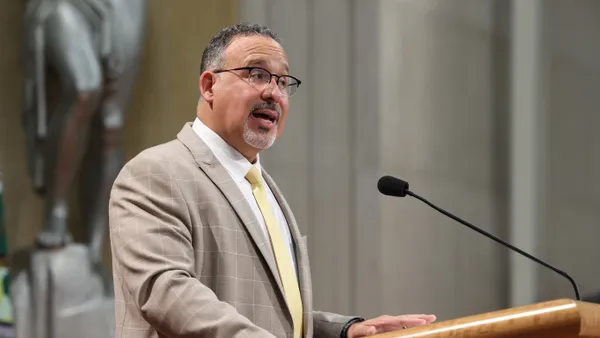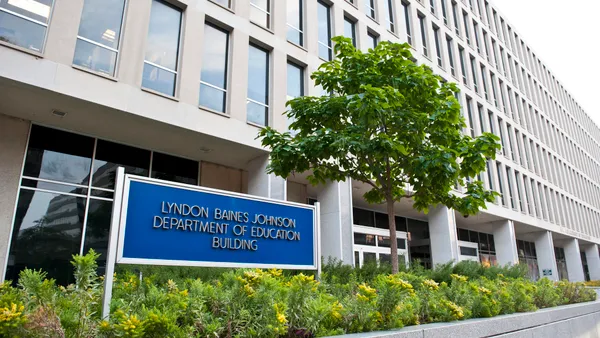Dive Brief:
- Students who complete remedial math courses in high school rather than college are more likely to enroll in first-year college-level math, but they aren't more likely to improve their skills or chances of passing. That's according to a new working paper analyzing a seven-year-old program for high school seniors in Tennessee.
- The prerequisite Seamless Alignment and Integrated Learning Support (SAILS) program only marginally increased how many courses students took once they got to college, suggesting remedial education isn't the "primary barrier" to low credit accumulation or delayed degree completion, the researchers explain.
- To improve remediation, they recommend strengthening high school math education and avoiding self-paced, online remedial courses, a format SAILS partially used. If that doesn't work, they suggest considering removing remediation altogether.
Dive Insight:
The increase in enrollment in first-year, college-level math courses in Tennessee as a result of SAILS is a good sign, Christopher Mullin, director at Strong Start to Finish, told Education Dive in an interview. The advocacy group works with institutions to improve remedial education.
"With the issue of math skills," he added, "it's important to remember that this is still a 'working paper' and that the study reflects the complexity of the system the program is operated in."
Remedial, or developmental, education has been of concern for about a decade. Its critics contend such courses raise students' college costs and hinder their ability to graduate on time.
Students bear a total annual expense of about $1.3 billion to take remedial courses, while colleges spend as much $7 billion to offer them. Yet students taking remedial courses are less likely to graduate in six years than are their peers who didn't take such classes.
Still, Mullin said, some reforms to remedial education have been successful. He pointed to "substantial increases" in student success with reforms such as better placement policies and strengthening K-12 math education.
Other reforms include the corequisite model of putting students in college-level classes instead and giving additional support to those who need it, as well as offering lower-cost remedial classes so students can catch up without burning through their financial aid.
In 2014, the Florida College System gave a majority of its students the choice to opt out of remedial classes, according to Florida State University's Center for Postsecondary Success. The decision came a year after a law went into effect that stipulated remedial courses use new methods of instruction and that institutions provide additional academic and advising support services.
Following the reforms, the system saw enrollment rates in remedial reading, writing and math decline and enrollment rates in introductory college-level courses, especially in math, increase. In addition, total first-year credit hours attempted and earned increased for all students.
"Remedial math education isn't a primary barrier to college education, it's one barrier," Mullin said. "There's no silver bullet in higher education in that there's one change and everything moves forward."
Correction: Due to an editing error, a previous version of this story misstated the Florida institution that allowed its students to opt-out of remedial education. It was the Florida College System.














